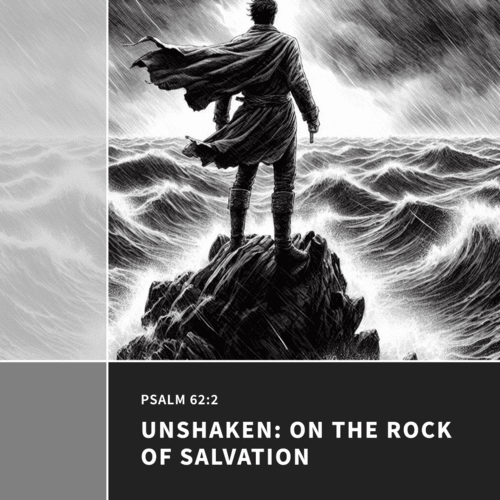Mortifying the Deeds of the Flesh: What It Means & Why It Matters
“For if you live according to the flesh you will die, but if by the Spirit you put to death the deeds of the body, you will live” (Romans 8:13). This solemn warning and promise from the Apostle Paul confronts every Christian with two crucial questions: What does it mean to mortify the flesh, and why must we engage in this work? Understanding these matters isn’t merely academic—our spiritual life depends on it.
Mortifying the Flesh—Defining Our Terms
The word “mortify” comes from the Latin mortificare, meaning “to put to death.” Sure, this does sound archaic, but it captures precisely what Scripture commands: a violent putting to death of sin. This isn’t mere behavioural adjustment or self-improvement—it’s far more radical.
Yet we must be clear about what biblical mortification isn’t. It isn’t:
- Mere behaviour modification
- Ascetic self-punishment
- A one-time decision
- Something we can accomplish in our own strength
Rather, true mortification is the Spirit-empowered, continuous work of putting sin to death. As John Owen famously wrote, “The vigour, and power, and comfort of our spiritual life depends on the mortification of the deeds of the flesh.”
Understanding “The Deeds of the Flesh”
When Scripture speaks of “the flesh,” it refers not merely to our physical bodies but to our fallen nature—the principle of sin that remains even in believers. This nature manifests itself in both obvious and subtle ways—from outward acts of rebellion to internal attitudes of pride and self-righteousness.
The “deeds of the flesh” encompass more than visible actions. They include:
- Sinful thoughts and desires
- Corrupted motivations
- Prideful attitudes
- Rebellious inclinations
- Actual transgressions
Understanding this helps us see why surface-level changes never address the real problem. True mortification must reach to the root of sin in the heart.
The Divine Command
God’s command to mortify sin isn’t a suggestion or merely good advice—it’s an imperative. The language of Romans 8:13 makes this clear: there’s no middle ground between mortification and spiritual death. This command appears throughout Scripture:
“Put to death therefore what is earthly in you” (Colossians 3:5)
“Abstain from the passions of the flesh” (1 Peter 2:11)
The very presence of these commands implies both their necessity and their possibility through divine grace.
The Spirit’s Role
Critical to understanding mortification is recognising that it’s impossible without the Holy Spirit’s work. As Paul emphasises, it is “by the Spirit” that we put to death the deeds of the body. This distinguishes Christian mortification from mere moral reform.
The Spirit enables mortification by:
- Opening our eyes to see sin’s true nature
- Strengthening us to resist temptation
- Drawing us to Christ
- Applying the benefits of Christ’s death
- Producing genuine hatred of sin
When we attempt mortification in our own strength, we inevitably fall into either pride or despair. The Spirit’s work keeps us dependent on grace while enabling real progress in holiness.
Mortifying the Flesh—Why Must We?
The necessity of mortification stems from multiple biblical truths:
- God commands it. This alone should be sufficient motivation for every believer.
- Sin’s nature demands it. Sin isn’t content to remain small—it grows like cancer if not actively resisted. As Thomas Brooks noted, “Either you must kill sin, or sin will kill you.”
- Our union with Christ requires it. Being united to Christ in His death means we cannot make peace with what killed Him.
- Our adoption as God’s children compels it. We’re called to reflect our Father’s holiness.
- Our future hope demands it. We’re being prepared for an eternal dwelling with a holy God.
The Vital Connection to Life
When Paul promises “you will live” to those who mortify sin, he’s not suggesting we earn life through our efforts. Rather, genuine spiritual life inevitably expresses itself in mortification. The presence of this warfare against sin becomes one evidence of true spiritual life.
Conversely, the absence of any mortification should cause serious self-examination. As John Owen warned, “Be killing sin or it will be killing you.”
Practical Implications
Understanding mortification’s meaning and necessity should drive us to:
- Daily engage with God’s Word
- Depend on the Spirit constantly
- Use of all means of grace regularly
- Examine ourselves constantly
- Resist sin moment by moment
Yet all our efforts must flow from our position in Christ. We fight as those already justified, adopted, and beloved—not as those trying to earn God’s favour.
Conclusion
Mortification isn’t optional for Christians—it’s essential to spiritual life. Yet we undertake this warfare not in our own strength but through the Spirit’s power, not to earn God’s favour but because we already have it in Christ.
Understanding what it means to mortify the flesh and why we must do so equips us for this lifelong calling. We fight knowing that while the battle is ours to wage, the victory is already secured in Christ.
As we consider these truths, let’s remember: the Christian life isn’t about perfection but direction. Are we, by God’s grace, actively engaged in this vital work of mortifying the flesh? Our spiritual health—indeed, our spiritual life—depends on it.
Mortifying the Flesh—Related FAQs
- How often should I actively engage in mortifying sin? Sin’s persistent nature requires daily vigilance and engagement. Just as we wouldn’t expect a garden to remain weed-free without regular attention, our hearts require daily examination and warfare against sin. The Puritans wisely taught that treating sin-killing as a sporadic duty rather than a daily discipline inevitably leads to spiritual decline.
- What are the ‘means of grace,’ and how do they help in mortification? The means of grace are the channels through which God ordinarily strengthens His people, primarily including Scripture, prayer, the sacraments, and fellowship with other believers. These aren’t magical practices but God-ordained ways He strengthens our faith and enables our obedience. Regular, faithful use of these means positions us to receive the Spirit’s mortifying power while neglecting them effectively disarms us in our battle against sin.
- What’s the relationship between my position in Christ and my daily fight against sin? Our position in Christ—justified, adopted, and beloved—provides both the motivation and power for mortification. Fighting sin from this position of acceptance—rather than for acceptance—transforms mortification from a burden into a privilege, as we’re putting to death what no longer defines us. Understanding our position in Christ prevents both license and legalism, as we fight sin not to earn God’s favour but because we already have it.
What is ‘vivification,’ and how does it relate to mortifying sin? Vivification refers to the positive side of sanctification—the coming alive to righteousness as we put sin to death. These two aspects of sanctification always go together: as sin dies, Christ-like virtues grow. The relationship is similar to pulling weeds while also planting flowers—the garden isn’t truly tended unless both occur.
- How can I tell if I’m making progress in mortifying sin? Progress in mortification often looks different than we expect, showing itself in increasing sensitivity to sin, quicker repentance, deepening humility, and growing love for Christ. Genuine progress typically involves becoming more aware of our sinfulness while simultaneously growing more confident in Christ’s sufficiency. Remember that mortification is more about direction than perfection.
- What role should the church community play in my battle against sin? God designed the Christian life to be lived in community, not isolation. The local church provides essential support through corporate worship, accountability relationships, pastoral counsel, and the encouragement of fellow believers engaged in the same warfare. Private mortification of sin, while necessary, is insufficient without the aid and oversight of the broader church body.
How do I avoid turning mortification into a legalistic practice? The key to avoiding legalism in mortification is maintaining a clear understanding of the gospel and our motivation. We mortify sin because we’re loved, not to earn love; because we’re alive in Christ, not to gain life; because we’re God’s children, not to become His children. When we feel ourselves slipping into duty-bound legalism, we must return to the gospel and remind ourselves that Christ’s finished work is the foundation for all our sin-killing efforts.
Mortifying the Flesh—Our Related Posts
Editor's Pick
SUPPORT US:
Feel the Holy Spirit's gentle nudge to partner with us?
Donate Online:
Account Name: TRUTHS TO DIE FOR FOUNDATION
Account Number: 10243565459
Bank IFSC: IDFB0043391
Bank Name: IDFC FIRST BANK






